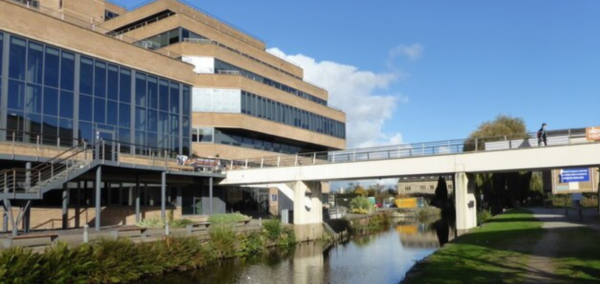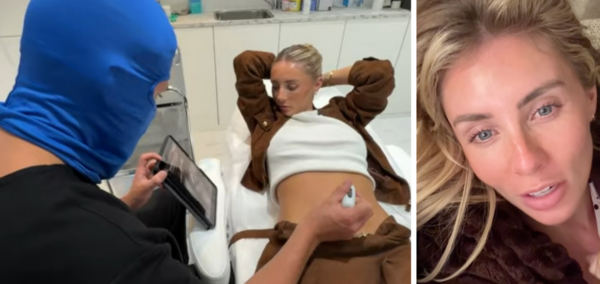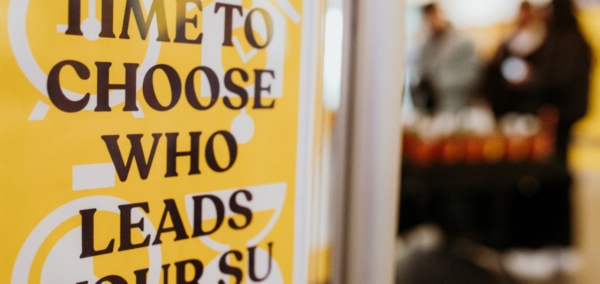
Go on, Bristol: Cop a feel! A chat with CoppaFeel about breast cancer awareness
Learn how CoppaFeel Bristol empowers students to check themselves and raise breast cancer awareness
October is Breast Cancer Awareness Month, so we decided to sit down and have a chat with CoppaFeel Bristol’s Hannah, a member of the Bristol University Boob Team, to find out how you can check yourself and spread awareness about breast cancer.
CoppaFeel is a breast cancer awareness charity whose mission is to ensure breast cancers are diagnosed at the earliest possible stage by encouraging regular breast self-checks. Their focus is on educating young people about the importance of knowing their bodies and being aware of the signs and symptoms of breast cancer. They aim to normalise conversations about breast cancer among young people by creating fun, relatable, and accessible events and campaigns that break down barriers surrounding this topic.
CoppaFeel specifically targets students and young adults through:
- On-campus campaigns: CoppaFeel partners with universities to run awareness events, distribute materials, and reach students directly, like their Uni Boob Team.
- Peer-led education: Programs like the Boobettes, who share personal stories, make breast cancer awareness more relatable and impactful.
- Text reminders: CoppaFeel offers a free service that sends monthly text messages to remind people to check their breasts regularly (Text BOOBS to 82228).

Why is it so important for young people, especially students, to regularly check their breasts?
Although breast cancer is rarer in younger people, it does occur. Students may overlook symptoms or delay seeking help, believing they are too young to be affected. Checking regularly helps students understand what’s normal for their bodies, making it easier to detect changes. CoppaFeel emphasises that cancer doesn’t discriminate by age, and early detection saves lives.
How to perform a proper self-check, and what signs or symptoms should we be looking for when checking?
Performing a self-check is simple and can be done anywhere. It is recommended to do one monthly, which is where the monthly text reminders can really become useful for remembering to check.
Signs and symptoms to look out for include:
- Lumps or thickened tissue
- Changes in the size, shape, or appearance of the breasts
- Skin dimpling or puckering
- Nipple discharge (without squeezing)
- Pain or discomfort in a specific area
- Inverted or changed nipples
- Redness or swelling
Remember to look and feel all areas with breast tissue, including breast, nipples, collarbone and underarms.
What are some common misconceptions students might have about breast cancer or self-checking, and how can we debunk them?
“Breast cancer only affects older women”: While it’s more common in older individuals, young people, including men, can also be affected. Breast cancer doesn’t discriminate by age or gender.
“Only women need to check their breasts”: Men can also develop breast cancer. Although women are more likely to develop breast cancer, 400 men are diagnosed with breast cancer each year. CoppaFeel encourages everyone, regardless of gender, to check their breasts regularly.
“If I find a lump, it must be cancer”: This may not be the case, but it is essential to get any changes checked by a doctor to rule out any serious issues.

What support is available for students who may be concerned about their own breast health or are supporting someone with breast cancer?
CoppaFeel promotes that knowing what’s normal for your body will give you peace of mind and put you in control. If you’re concerned about something you find, it’s important to see a doctor. CoppaFeel provides resources and reassurance, encouraging students to seek medical advice if they’re worried.
Speak to friends and peers! If you are feeling worried or anxious, talk to someone you trust.
For those supporting someone with breast cancer, CoppaFeel also offers guidance on how to provide emotional support and connect with healthcare professionals. Resources addressing these concerns are available on the CoppaFeel website.
How does CoppaFeel reach university students, and what initiatives do you have in place at the University of Bristol or other universities?
Cancer survivors and young volunteers, known as their team of Boobettes, often visit campuses to share their personal stories and educate students about self-checking.
Their University Boob Teams (UBTs) are groups of student volunteers who also act as on-campus ambassadors, raising awareness through events, talks, and campaigns. Their main goal is to raise awareness and get as many people joining the conversation of breast health and cancer awareness as possible in Bristol, often in collaboration with other societies, to reach students of diverse identities and interests. Examples of previous events include pink sports night, bra decorating, yoga, movie night, and pub quizzes.
They also have a CoppaFeel X GirlsWhoWalk walk on 20th October for breast cancer awareness month.
All their resources are free for everyone to use, so you don’t need to worry about costs. As a charity, they provide:
- Free monthly text reminders
- Educational tools: Online videos and infographics guide students through self-checking.
- Support networks: For students concerned about their health, Coppafeel directs them to healthcare services and can connect them to emotional support networks, including other charities.
- Resources like leaflets, text reminder cards, stickers and badges (and the big boobs you might have seen around).
CoppaFeel recommends that if you want to get involved in raising awareness, you can:
- Attend CoppaFeel events at university, which are often run a couple of times a month
- Join the UBT (applications open in April) which will get you into direct contact with the charity by organising and attending CoppaFeel events within the university and more generally.
- Fundraising – e.g. sponsored run
- CoppaFeel often need volunteers to help run events. Information regarding volunteer opportunities will be advertised on their website and social media
- Attend our events and bring friends
- Continue the conversation by talking to peers and encouraging friends to regularly self-check/get to know their normal
- Follow @CoppaFeel for information and updates.


















